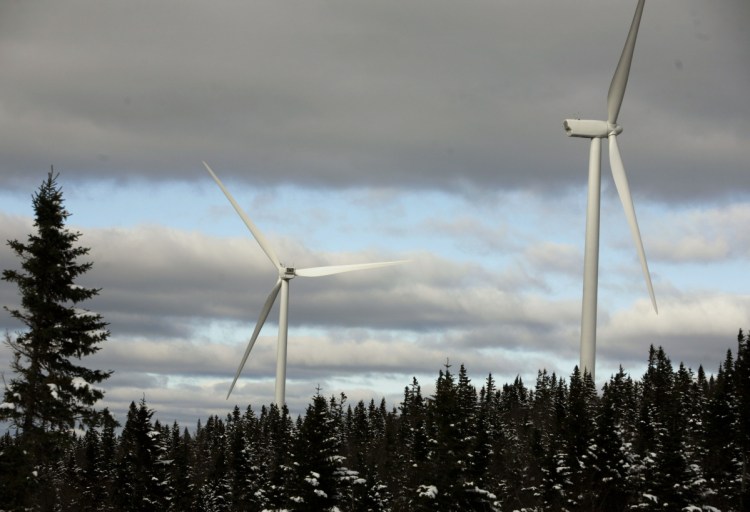GLENBURN — Since first hiking into the Maine woods in 1965 as a forester and photographer, I note huge changes in our visual landscape, a key asset for quality of life and tourism. Wind farms and power transmission contribute to the visual degradation, and more is coming.
In 1983, my son and I slept overnight in the old Barren Mountain fire tower on the Appalachian Trail. At midnight I peered out the window into a starlit sky, extending in all directions of the compass. I recall seeing one red light, far to the south on the Dexter radio tower.
The fire tower is gone and so is the unobstructed night sky view, as wind farms march north toward Moosehead. To the east, more flashing lights announce the presence of industrial-strength development. What was once scenic, untrammeled night sky in the Maine woods is rapidly disappearing.
I hiked No. 5 Mountain west of Jackman in 2016 to photograph the Upper Moose River Basin. The magic-light sunset view was beauty beyond belief. The night was warm, so I bivouacked under scrub spruce, waiting for night sky. I got up to shoot stars and was visually shell-shocked by whirling windmill lights to the north over the Quebec border. To the southwest, more of the same from the Kibby wind farm, and I could see east to Misery Ridge, site of a proposed wind farm.
LOSING VISUAL GROUND
At that very moment on No. 5, it occurred to me that the remote regions of Maine are losing visual ground, that maybe we need to rethink our development plans. I’m not anti-development, anti-alternative energy. Within some of these landscapes, I’ve cut trees and hugged trees. Over many decades of wandering in these landscapes, the visual changes are enormous. Are they being conveniently forgotten?
The degradation of visual landscape value is implicated in the new proposal to transmit power from Quebec to Massachusetts, smack dab through the Upper Kennebec Basin. They tried this in New Hampshire, with the Northern Pass project. Interests aligned with Hydro Quebec now want to use Maine’s unique, remote, scenic back door for large-scale power line transmission.
At some point you draw the line. We need to protect the scenic natural assets given to us by prior generations, for future generations. Is this not our shared responsibility and obligation? Beauty and solitude enrich our rural quality of life here in Maine. Visitors don’t come here for the transmission lines and wind farms.
Back in Angus King’s governorship, I worked in forest resources and rural development in rural Maine. Gov. King showed up every spring to meet with the Economic Development Council to talk shop. One year we spoke back and forth about the value of our rural assets. His words about our rural assets stayed with me, and I hope they stay with all of us. Here’s the gist of it.
King acknowledged the tough economic conditions across rural Maine. He also noted that our rural regions have something that no one else in Maine or New England does. He said, “You have this incredible abundance of natural resources that is the very reason for why people come to your region. The lakes, the rivers, the forests, the mountains – these are your natural assets.”
The governor cautioned us about how we manage and develop these assets. Granted, King is pro-wind power and has developed wind projects, yet he suggested that if we give these natural assets away willy-nilly, then we might well lose the very things in our backyard, the natural and scenic assets, that bring folks to rural Maine.
PAVE PARADISE?
This was true then for the Economic Development Council, which was launching tourism initiatives. It’s just as true now for a region faced with yet more wind and power line proposals that will unalterably and adversely degrade the scenic values inherent in our natural assets, assets that draw people to our region, feeding our rural economy.
I offer this possibility: That the communities, counties and representatives associated with the Moosehead region and the Upper Moose River Basin get together to talk about this, to seek agreements, to draw up documents that officially declare and circumscribe Moosehead and Upper Moose River Basins as wind farm- and power transmission line-free zones in Maine.
This is about acting to protect the value of our natural rural assets, assets that support the rural small-business and tourism economy, assets that feed our hearts and souls on a quiet night, by the edge of a lake on a starlit night …
To do nothing is simply to let the big boys pave paradise and put up the parking lot, and the lights.
Send questions/comments to the editors.


